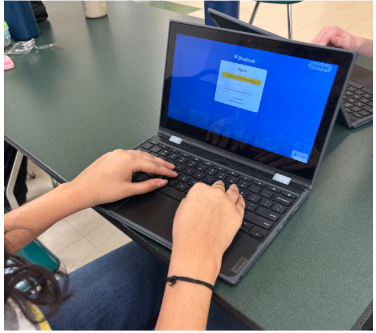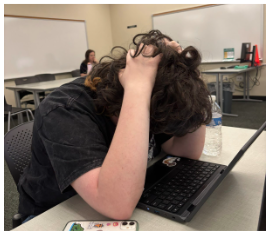Why Do Students Listen to Music, and Should They Stop?

Listening to music causes your brain to release dopamine, a chemical that can aide in focus.
May 1, 2023
A lot of what high school students do involves some sort of music. Whether it is studying or performing a mindless task most students like to have music to help keep their focus and create enjoyment.
It can be hard to understand why students are so connected to their music. Many people will think of music as entertainment and won’t look deeper behind it. This ends up leaving people like teachers to believe the music is just a distraction and is harming the students progress in the class. Because of this lack of understanding more students who rely on music during classes to focus will be left struggling more in the classroom.
Jennifer L.W. Fink, a writer on the website Pfizer, states that the reason why music is listened to so much is because it helps raise your level of dopamine. “As your brain becomes familiar with a particular song, your body may release dopamine upon hearing just the first few notes of the song,” she said. Higher levels of dopamine means it is easier to focus. The music is not only making students who listen to music while studying feel better, but also is heightening their focus.
Now not all music will help students focus and retain information. Many songs can be very distracting and cause a lack of focus. According to Rudy Miller, the author of “The Effects of Music on a Student’s Schoolwork,” slower and classical music helps students with focus, dopamine, and the retention of information. A test was done with Baroque music and it helped student retention up to 97 percent. Even four years later, when students had not reviewed the material, most remembered the lesson.
Music should be allowed in all classes for high school students to enjoy. It gives their learning space a more comforting environment and overall can help them study and learn. While all the positive effects of music aren’t completely understood it at least is known to help and as Fink writes, “It may take scientists years to fully untangle music’s actions in the brain. Thankfully, we can enjoy music’s benefits without fully understanding the science.”






























